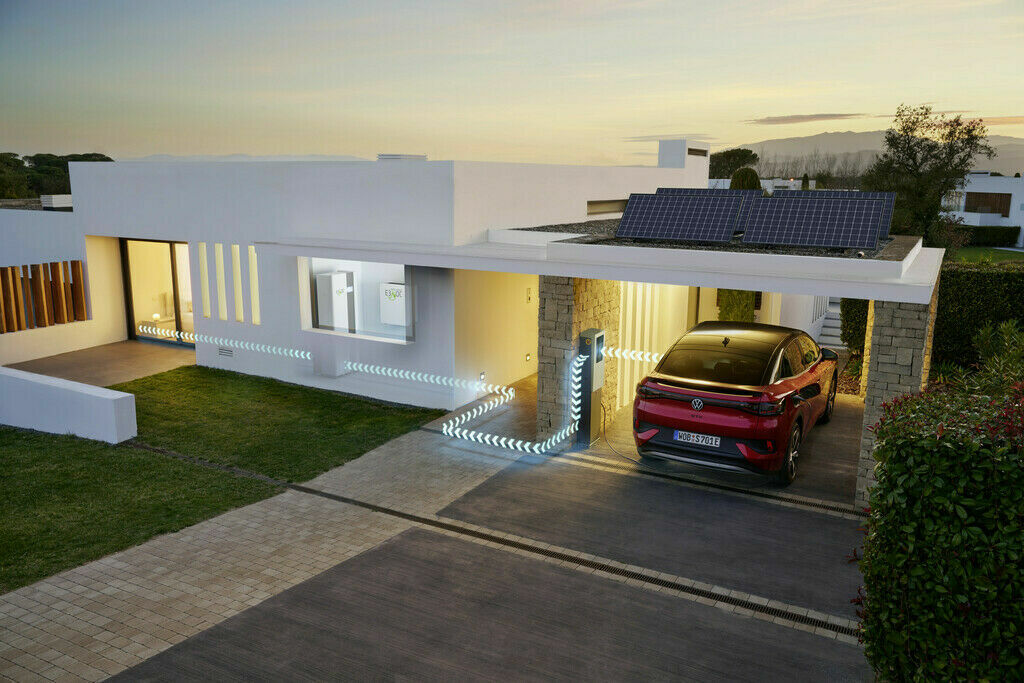"We are actively shaping the energy transition with products and services centered around the electric car: With the bidirectional charging function that is now available, we have tailored a new service offering to the needs of our customers. Not only can they save energy costs, but they are also making an important contribution to the sustainable use of energy," says Imelda Labbé, Volkswagen Board Member for Sales, Marketing and After Sales.
Bidirectional charging will transform electric cars into rolling energy storage units in the future
ID. models with the 77 kWh battery (net) will be able to use the bidirectional charging function to store electricity at home. VW will also be able to activate the function for vehicles that have already been delivered as soon as they have also received the ID. Software 3.5 via an update. Thanks to the high storage capacity, a house can also be supplied with solar power over several cloudy days or in the evening when the sun has set and the photovoltaic system is no longer supplying electricity. This means that customers can decide for themselves when they want to draw energy from the public grid or use the self-generated electricity stored in the vehicle battery.
Intelligent charging to stabilise the power grid
In addition, with clever electricity tariffs and algorithms, it is already possible today to charge the car precisely when there is a lot of renewable energy available. For example, wind turbines do not have to be switched off because there are no consumers. The electric cars can feed electricity that they do not need into the customer's home grid (vehicle-to-home) and in future also provide power to stabilise the electricity grid.
The residents of the Stenberg housing estate in Hudiksvall, Sweden, are already benefiting from the new technology
The farm, which was remodeled as the basis for the new settlement, has been there for around 350 years. Swedish entrepreneur Klas Boman wants to make the houses future-proof and sustainable for another 350 years by remodeling them: "Stenberg is a once-in-a-lifetime project. When we decided to realise "the other 350-year project", energy and the environment were key. Every decision was made with these aspects in mind. The use of electric vehicles as energy storage was considered from the outset. Thankfully, Volkswagen joined the project in April 2021 and we are now ready to go. This will be one of the biggest changes in the energy market."
Volkswagen is a pioneer in bidirectional charging
This makes Volkswagen one of the first providers of a bidirectional charging solution based on the CCS (Combined Charging System) DC charging standard, which is widely used in Europe. Bidirectional charging is based on ISO standard 15118-2, which describes the communication between electric vehicles and wallboxes.
The bidirectional charging function in the ID. models in combination with the DC charging technology is a dynamic extension of the home storage system. This takes over the main energy supply for the house. The vehicle is activated by the home power station when the home storage system requires additional energy. As soon as the home storage system is recharged, the vehicle stops transferring energy and goes into standby mode. This means that the ID. is only activated when additional energy is required. Assuming an average consumption of a house of approx. 30 kWh, it can be supplied with electricity for around two full days. The high-voltage battery cannot be discharged below 20 % state of charge to ensure readiness for mobility. In the first version, the relevant ID. models are only compatible with the DC home power station of the S10 E COMPACT series from HagerEnergy GmbH. Other home power stations are to be enabled for operation with a bidirectional charging station (wallbox) at a later date.






